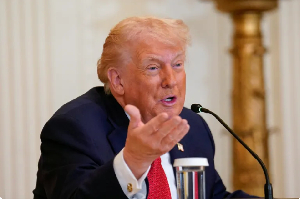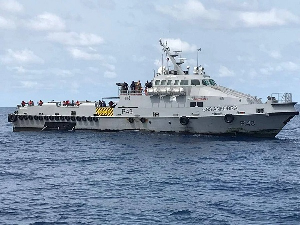Introduction
The New Patriotic Party (NPP) introduced its flagship Free Senior High School (FSHS) education policy in September 2017, as the Presidential Initiative was party’s anchor promise to the Ghanaian electorate ahead of the 2016 general elections.
Since its launch, due to sheer numbers of beneficiaries, the Free SHS initiative has gained traction and generated citizen participation and interest in the promises made by political parties on how they intend to improve the education sector and also expand the reach of the initiative.
In its latest 2020 manifesto, while touting its Free SHS initiative, the governing party has made new promises, which it hopes would draw more voters to its side in the December 2020 general elections.
The ruling party boldly stated its accomplishments since assuming the helm of government in 2017.
The NPP’s claims on education have been itemised from numbers 92 to 130, which can be found on pages 52 through to 58. Ordinarily, the party deserves commendation for the claims if all or most of them were accurate.
Painstaking checks and analyses however indicate that most, if not all, of the claims made in the manifesto are unfounded, misleading or the usual grandiose, vote courting promises.
In the following paragraphs, the Ghana Economic Dialogue (GED) team exposes some serious inconsistences and fundamental flaws in many of the claims espoused in the manifesto, to help citizens decipher substance from the usual political hot balloons.
Claim number one
The NPP, on page 54 of its 2020 manifesto, in item 98, claims that they have restored the Book and Research Allowances for lecturers and increased it by 200 percent.
Comments
This claim on increasing the Book and Research Allowance by 200 percent is false and misleading as there was nothing to be restored in the first place, since the Book and Research Allowances were never taken off or cancelled by the previous National Democratic Congress (NDC) government.
Careful checks also revealed that the previous regime proposed a replacement for the Book and Research Allowance and thus initiated plans to establish a National Research Fund (NRF), to ensure better funding of scientific research in the country. The proposed fund was therefore meant to enhance the amount of monies paid to lecturers for research.
To move the steps forward and to help practicalise the NRF, a draft National Research Fund Bill was put together in 2014.
The Ghana Economic Dialogue can state without a shred of equivocation that the University Teachers’ Association of Ghana (UTAG) and the then Polytechnic Teachers’ Association of Ghana (POTAG) protested the establishment of the NRF with the reason that the two institutions had not been consulted. The two higher teacher institutions also contended that the NRF and the BRA could exist side-by-side.
After painstaking negotiations, a memorandum of understanding (MOU) was signed between the government and UTAG in 2015. The MOU documented that the BRA would continue to be paid until further negotiations on the way forward were concluded. The previous government therefore adhered to the MOU and continued paying the BRA until it left office in January 2017.
Again, there are two components of the BRA; the Book Allowance, amounting to $1,500 and the Research Allowance, which was GHS500. What has been increased by the current government is the Research Allowance component, which is now GHS1,500. It can therefore not be true that the current government increased the two research grants by 200 percent.
Claim number two
In item 103 on page 54 of the 2020 manifesto, the NPP claims that it has implemented a Free SHS policy (on universal basis), which encompasses Technical and Vocational Education and Training (TVET).
Comments
The addition of the qualifying phrase “universal basis” to the claim of implementing a Free SHS policy itself suggests and is an admission that there was, at least, a form of Free SHS policy in place before the NPP assumed office in January 2017.
What was therefore introduced by the NPP was a modification and enhancement of what the NDC government started before it left office. This fact has been acknowledged by the current NPP government, with the claim that the NDC left some debts it incurred in the provision of Free SHS for them to come and pay.
Secondly, it is not wholly true, and thus deceitful, for the NPP to claim that the Free SHS policy also includes Free TVET. The TVET sector of Ghana’s educational system spans several ministries and agencies; including but not limited to the Ministry of Education (MoE), Ministry of Employment and Labour Relations (MELR), the Technical Education Division (TED) of MoE NVTI, ICCES and with coordination done by COTVET.
What the NPP government is referring to as Free TVET, the Ghana Economic Dialogue respectfully submits, covers only those in the Senior High Technical Schools (SHTS) or the Technical Institutes. This therefore makes TVET students under the MoE the only current beneficiaries of the Free SHS policy in the TVET sector.
Students in the NVTIs and ICCES among others, who actually constitute the majority of the TVET population in the country, are currently not benefitting from the Free SHS policy. It must also be stressed that these aforementioned institutions are all part of the second cycle education sector in Ghana.
Claim number three
Further under the TVET sector, the NPP claims, under item 112 on page 56, to have developed a TVET Qualifications Framework and accredited some 80 institutions to run competency-based training (CBT) programmes in the country.
Comments
This claim is also untrue as the development of the TVET Qualifications Framework and the introduction of CBT into the TVET sector of Ghana’s educational system far predate the assumption into office of the current government. The eight-level National TVET Qualifications Framework was developed and adopted through the enactment of a Legislative Instrument (LI 2195) in 2012, under the previous NDC regime.
Secondly, the accreditation of institutions to run the CBT and the subsequent training of teachers in those institutions commenced in 2013/2014. Technical Universities (then Polytechnics) were also brought on-board to run the CBT programme, with the selection of the College of Technology of University of Education (UEW-COLTEK), Kumasi Campus, as the centre to supervise the rollout of the programme. A CBT Centre was thereafter established on the COLTEK campus to place it on a better footing to take up that responsibility.
Claim number four
In item 130 on page 58 of the 2020 manifesto of the NPP, the party claimed to have instituted a $219 million project aimed at improving learning outcomes in the most underperforming schools under the Ghana Accountability for Learning Outcomes Project (GALOP).
Comments
This claim is again false and deceitful, as evidence shows that the GALOP Project was not initiated by the current government. GALOP is purely a World Bank (WB) sponsored project with EPULIC listed as the Borrower and IIST as the implementing Agency.
This WB initiative was started in 2019 with the aim of supporting the implementation of the Education Sector Plan (2010 to 2020), which has now been extended and replaced with the Education Strategic Plan (2018 to 2030).
Conclusion
The above examples are just a few of the false and misleading claims discovered in the 2020 manifesto of the NPP. There are several other inaccurate claims about the education sector in the manifesto of the NPP.
These can be found in items 93, 94, 95 & 96 on page 52; items 101 & 106 on page 54; item 111 on page 55. It is therefore worthy to conclude that apart from its flagship Free SHS programme, all the other claims on education are a pale shadow.
Opinions of Monday, 28 September 2020
Columnist: The Ghana Economic Dialogue















